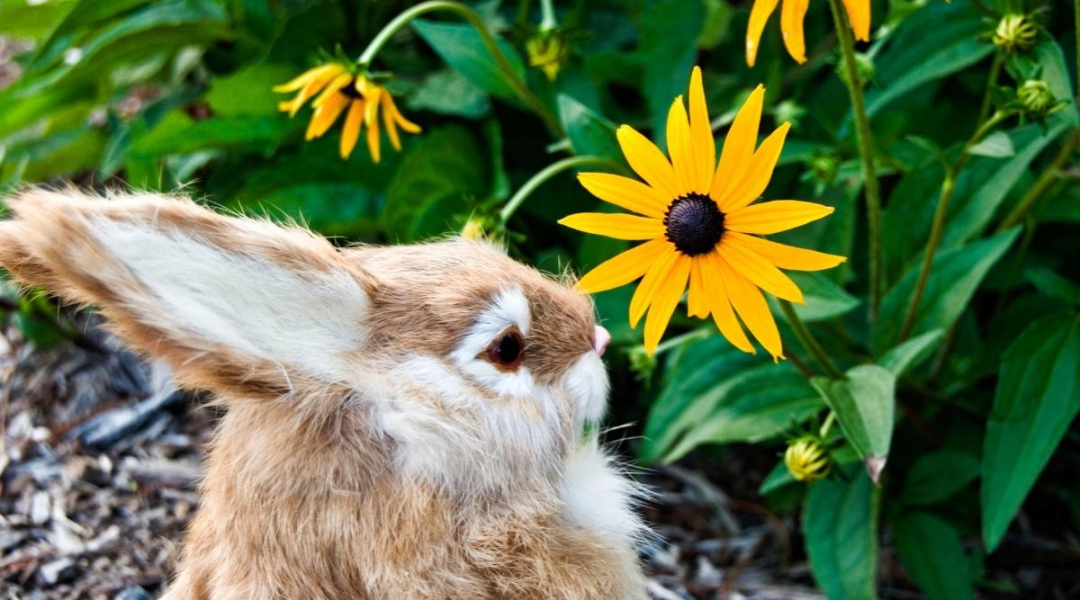Do Rabbits Eat Coneflower?
When it comes to gardening, it is essential to understand what plants are safe from the prying appetite of rabbits. Coneflowers, also known as echinacea, are popular flowering plants that are often found in gardens and landscapes. Many people wonder if rabbits find coneflowers appetizing or if they are safe from their nibbling tendencies.

What are Coneflowers?
Coneflowers, scientifically known as echinacea, are perennial flowering plants that belong to the daisy family. They are native to North America and are known for their vibrant and eye-catching flowers. Coneflowers come in various colors, including purple, pink, white, and yellow. They are highly valued for their ornamental beauty and are often cultivated in gardens and landscapes.
Do Rabbits Eat Coneflower?
Unfortunately, rabbits have a known affinity for coneflowers. These herbivorous creatures find the tender leaves and flowers of coneflowers quite irresistible. If you have a rabbit problem in your garden or live in an area with a high rabbit population, it is likely that your coneflowers might become a target for these little munchers.
Why Do Rabbits Eat Coneflower?
Rabbits are constantly on the lookout for fresh greens to munch on, and coneflowers happen to be one of their preferred choices. The reasons why rabbits eat coneflower include:
- Appetizing Taste: Coneflowers have a mild taste that rabbits find appealing.
- Tender Leaves: Rabbits prefer plants with tender leaves, and young coneflower leaves fit the bill.
- Nutritional Value: Coneflowers contain essential nutrients, including vitamins and minerals, which make them an attractive food source for rabbits.
How to Protect Coneflowers from Rabbits?
If you want to safeguard your coneflowers from rabbit damage, there are several effective methods you can employ:
- Physical Barriers: Install a fence or chicken wire around your coneflowers to prevent rabbits from accessing them. Ensure that the fencing is buried at least six inches deep to deter any burrowing attempts.
- Repellents: Apply natural repellents, such as vinegar, hot pepper spray, or blood meal, around your coneflowers. These scents can deter rabbits due to their strong smell.
- Companion Planting: Surround your coneflowers with plants that rabbits dislike, such as marigolds, daffodils, or lavender. This can make the area less attractive to rabbits.
- Scare Tactics: Place scarecrows, reflective objects, or motion-sensor sprinklers near your coneflowers to frighten rabbits away.
FAQs
1. Are coneflowers toxic to rabbits?
No, coneflowers are not toxic to rabbits. However, excessive consumption can still cause digestive issues in rabbits, so it’s best to limit their access to these plants.
2. Can rabbits kill coneflowers?
Rabbits can cause significant damage to coneflowers by nibbling on their leaves and flowers. However, with proper protection and preventive measures, it is possible to save your coneflowers from complete destruction.
3. Can rabbits develop an aversion to coneflowers?
No, rabbits are unlikely to develop an aversion to coneflowers. If they find these plants accessible and appealing, they will continue to eat them whenever given the opportunity.
4. Are there rabbit-resistant coneflower varieties available?
While no coneflower variety can be deemed completely rabbit-resistant, some varieties are known to have a higher chance of surviving rabbit encounters. Varieties like Echinacea purpurea ‘Magnus’ and Echinacea paradoxa are believed to be less palatable to rabbits.
In conclusion, rabbits do have a tendency to eat coneflowers due to their taste and nutritional value. Employing physical barriers, using repellents, companion planting, and scare tactics can help protect your coneflowers from rabbit damage. However, it’s important to remember that no method is foolproof, and rabbits may still find ways to nibble on your prized plants. By taking proactive measures, you can minimize the impact of rabbit browsing on your coneflowers and enjoy their beauty for years to come.
Related Articles…
Copyright Notice:
The images displayed here are sourced from the internet, with copyrights held by respective owners. For removal of any copyrighted image, please email us.